The solar-powered wells we drill save lives, but transformational change across generations requires more.
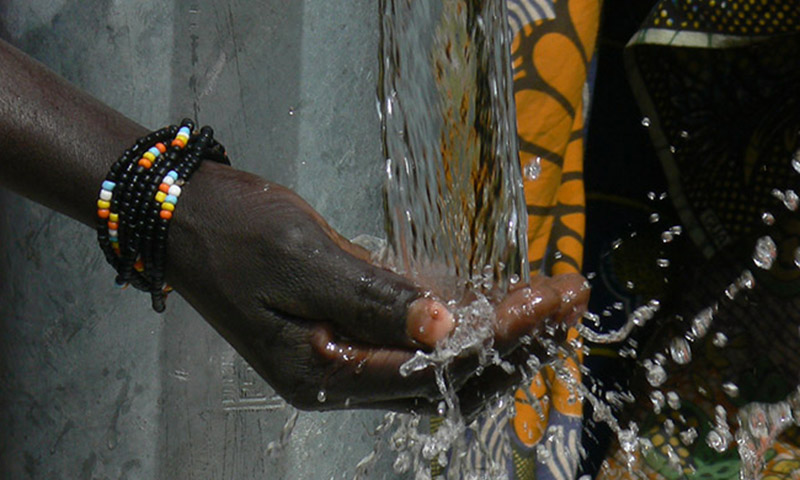
STEP 1
Once the site of a well has been determined, the education process begins. We teach the villagers how to build latrines and why it’s important to use them. The goal is to end the the practice of open defecation, which contaminates groundwater.

STEP 2
As drilling begins, the village gathers to watch as a heavy-duty drilling machine operated by skilled water engineers bores deep into the earth to tap the plentiful aquifers 250-300 feet below ground. The drilling takes 3-4 days. A submersible pump is then inserted.

STEP 3
Solar panels are installed to convert sunlight into electricity, which drives the motor and the pump. An above ground water tank with a capacity of 2-3 days’ worth of water is then constructed and water is pumped into it. A gravity-fed, underground piping system is installed that directs water from the tank to a water point in the village.
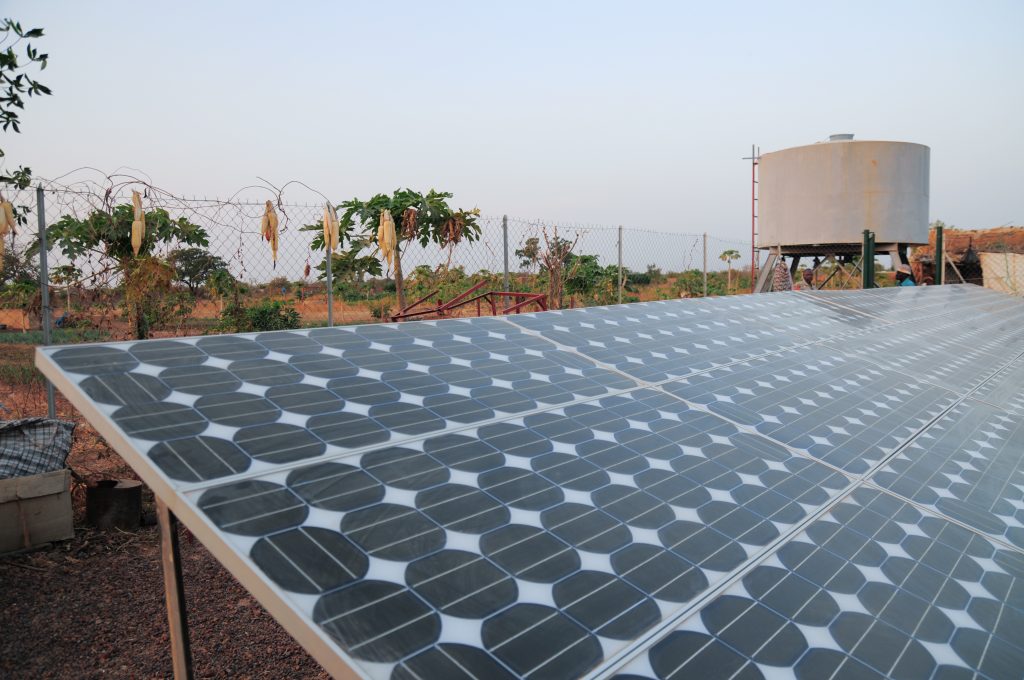
STEP 4
A tap stand is built at the water point and has several taps, depending upon the size of the village. One tap serves roughly 500 people. These taps allow villagers to simply turn on a faucet to instantly access safe, clean water.
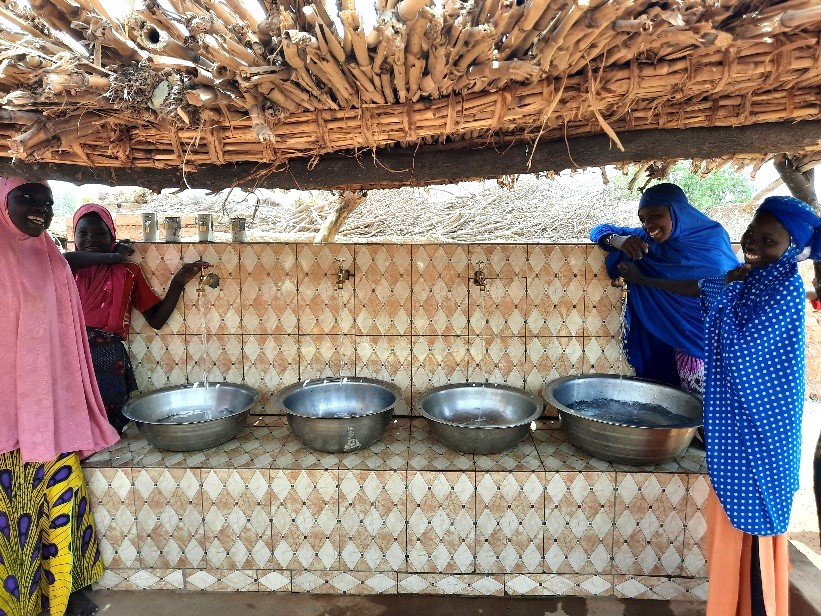
STEP 5
Before the well is drilled, a committee, which must be 50% female, is established to monitor and maintain it. The committee members are taught how to handle minor repairs. A maintenance fund is also established, and everyone in the village contributes a small amount of money, which creates a feeling of “ownership.”
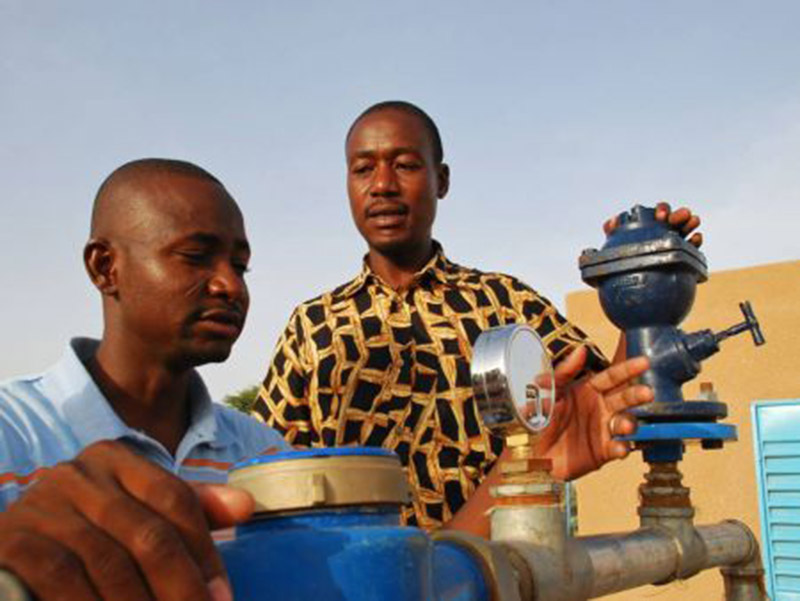
STEP 6
Once the well is drilled, we begin the critical process of educating the villagers on good hygiene practices. We demonstrate how to keep water utensils clean and protect the water from contamination. We show mothers how to keep the faces of children clean to prevent trachoma. We stress the importance of hand washing and encourage them to use the hand-washing stations provided in or near their school.
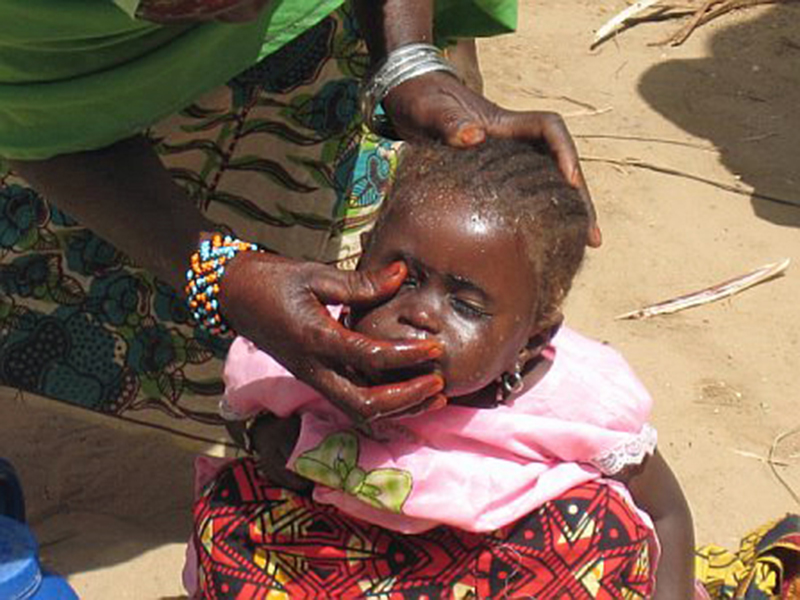
STEP 7
We teach drip farming and show the villagers how to use grey water to grow gardens that supplement their nutrition. With the increasing frequency of famines due to climate change, these gardens help prevent death from starvation.
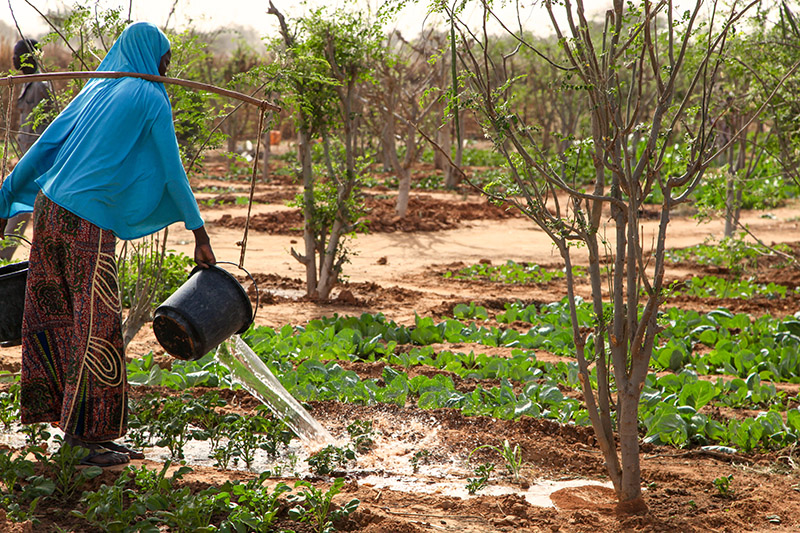
STEP 8
Our partner World Vision, through its Building Secure Lives program, helps women to establish savings groups that allow them to start businesses to support their families.
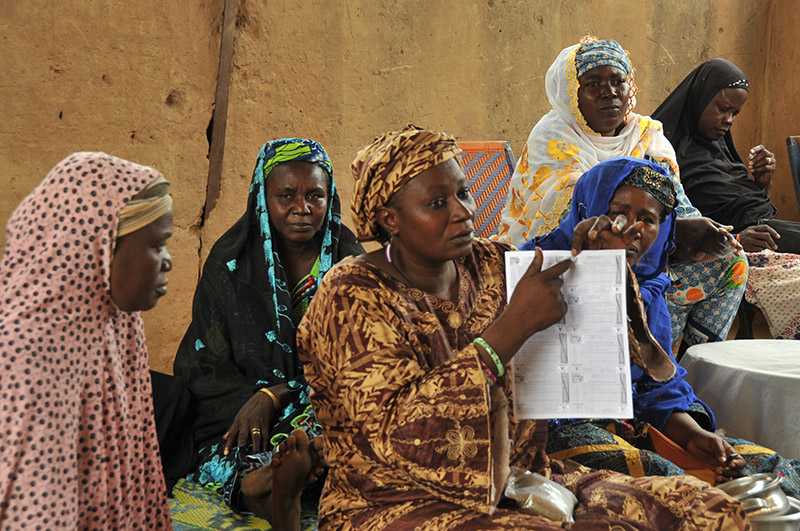
Drilling a well is the starting point – long-term sustainability requires education and ongoing support. It is not easy to motivate people to adopt new ways of living, new health practices that challenge generations of ingrained habits. With monthly visits, we maintain a presence in each village for 15+ years to help ensure sustainability.
Director of Operations
Phone: 802.233.6254
Mailing Address:
16563 Park Lane Circle
Los Angeles, CA 90049

Saving Lives with Safe Water
Wells Bring Hope is a 501(c)(3). Read our Privacy Policy. © Copyright 2024 Wells Bring Hope. all rights reserved.